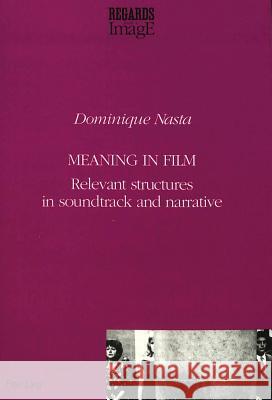Meaning in Film; Relevant Structures in Soundtrack and Narrative » książka
Meaning in Film; Relevant Structures in Soundtrack and Narrative
ISBN-13: 9783261044822 / Angielski / Miękka / 1992 / 180 str.
Understanding how meaning mechanisms are unleashed in film has been at the center of numerous theoretical surveys of the last few years. Emphasis has especially fallen on "seeing" as a constructive, meaningful activity and on the diegetic implications of vision.
This book is an attempt to extend film theorizing into a new realm, where "hearing" proves as important as seeing and where the relevance of filmic narrative is differently explored. New paths for future research are suggested by means of associations with the works of linguists or philosophers who have never addressed film theory directly in their writings. Nonetheless, several concepts posited by them (relevance, natural versus non-natural meaning or the notion of Mental spaces) find their application in the present survey.
A wide range of examples starting with point-of-view and editing occurrences, passing through the use of music and sound and culminating with the study of whole filmic ensembles, enables the reader to re-examine code-bound or, on the contrary, deviational structures. These are often drawn from familiar sources, proving that not only art films of the Eisenstein or Godard type enhance innovative meaning spaces.
Finally, the viewer is seen as a -pragmatic protagonist-, an active not passive receiver of textual structures who relies on patterns of known visual or aural backgrounds open to an unlimited field of perspectives."











